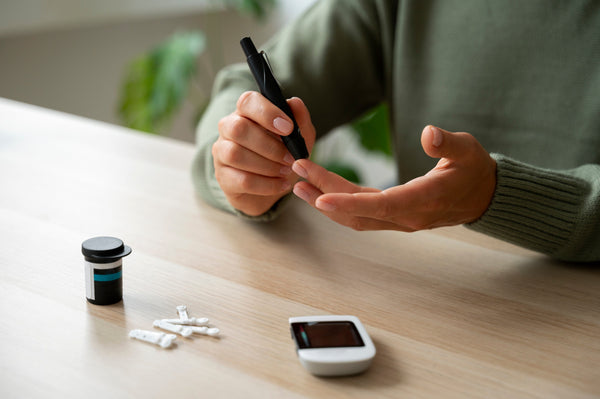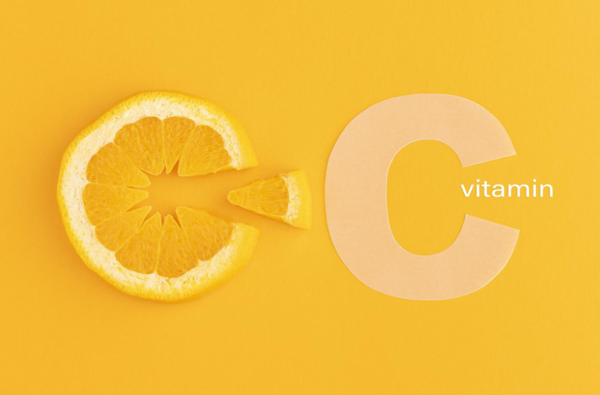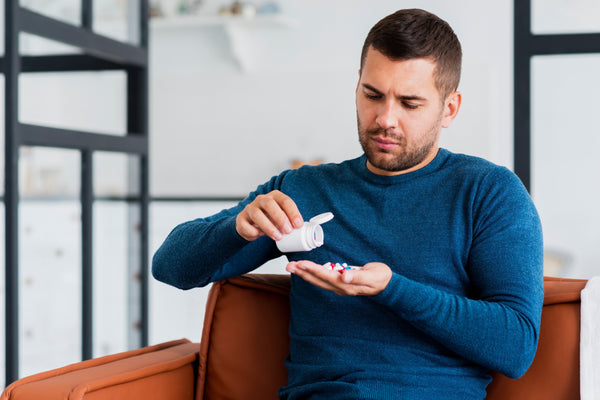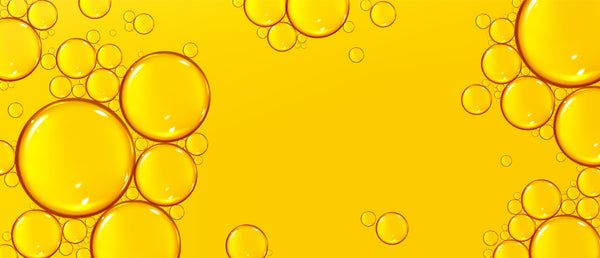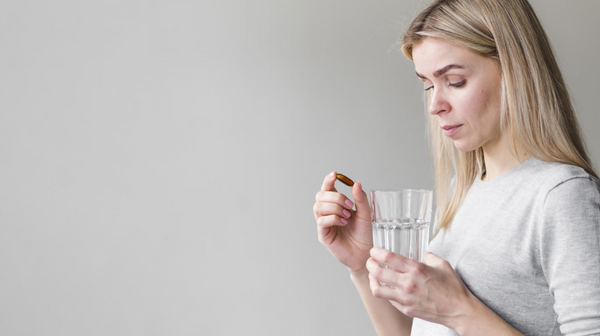Urinary Tract Infections, or UTIs, are commonly caused when bacteria enter the urinary tract through the urethra and begin to multiply in the bladder. It can affect any part of your urinary tract, from your kidneys, uterus, and bladder to your urethra. While lower-tract UTIs are more common, upper-tract UTIs are more serious. A burning sensation, abdominal pain, and cloudy urine are all signs of a potential urinary tract infection (UTI). If left untreated, these symptoms quickly escalate from annoying to painful. In this blog, we'll look at the foods that can help avoid UTIs as well as those that can make them worse.
What is UTI?
An infection that includes any part of the urinary system is termed a urinary tract infection. The urinary system acts as the body’s drainage system, which helps in clearing out waste and excess water from the body. It is made up of two kidneys, two ureters, one bladder, and one urethra. The two kidneys, along with the two ureters (two thin, pipe-like structures attached to the kidneys), make up the upper part of the urinary tract. The bladder (a small bag-like structure where ureters empty) and the urethra (a small, narrow opening at the end of the bladder), on the other hand, make up the lower urinary tract. Most upper urinary tract infections affecting the kidneys are known as pyelonephritis, while lower urinary tract infections affecting the bladder are termed cystitis and urethritis of the urethral passage. Urinary tract infections can affect everyone at any age, although women are more susceptible than men due to their shorter urethras.
People with diabetes, spinal cord injury, kidney stones, an enlarged prostate, and those who use a tube to drain their bladder are also at a higher risk of developing UTI infections.
UTI Symptoms
UTIs may show up in your system through various body signals. Some of the common UTI symptoms include:
- Dysuria (pain or burning sensation during urination)
- Itching
- Increased frequency of urination
- Urinary incontinence, or the urge to urinate immediately
- Foul smell in urine
- Reddish, frothy, or cloudy urine
- Yellow, cloudy, or reddish discharge from the genitals
- High fever
- Fatigue (tiredness) or shivering
- Pain in the lower abdomen
- Pain in the back below the rib
UTI Foods
A nutrient-dense diet plays a vital role in treating urinary tract infections to boost the immune system, minimize irritation, and help the body get rid of bacteria. We’ve listed a few common foods that you can consume to prevent recurring UTI infections. If your condition is serious, it's always recommended that you contact a medical specialist.
Let's go over each of the foods that can help with UTI symptoms in more detail:
1 Berries
Unsweetened Cranberry juice and Blueberries are rich in vitamin C, phytochemicals, D-mannose, hippuric acid, and anthocyanins that limit the effect of the infection-causing bacteria. D-mannose, present in cranberries, is a type of sugar molecule that can stop bacteria from sticking to the wall of our bladder.
Proanthocyanidins (PACs) present in Blueberry and Cranberry extract help acidify the urine and cleanse the bladder walls. This also prevents E. coli bacteria from attaching to the mucosal lining of the urinary tract and causing painful infections. Thus, berries can act as an analgesic, giving you relief from UTI pain.
Cranberry extract is also as effective as antibiotic use in preventing urinary tract infections without the obvious side effects of regular antibiotic use.
2. Probiotic
Probiotics are beneficial microorganisms that promote a healthy balance of bacteria in your gut. They are commonly found in fermented foods such as kefir, kimchi, kombucha, and probiotic yogurt. Dairy products like yogurt are good sources of probiotics (healthy microbes), which are essential for a healthy gut and strong immune system, and are also believed to help in treating UTIs. Yogurts containing probiotics like Lactobacillus tend to dominate the genital flora (microbes residing in the urogenital tract), which is otherwise dominated by UroPathogenic (UTI and other disease-causing bad microbes). Basically, it promotes the victory of good over evil (bacteria).
Antibiotics are the main line of defense against UTIs, but they can cause disturbances in the levels of gut bacteria. Probiotics may also be beneficial for restoring gut bacteria after antibiotic treatment. Studies have also shown that probiotics can increase levels of good gut bacteria and reduce side effects associated with antibiotic use. A 2013 study found that Lactobacillus, a common probiotic strain, helped prevent UTIs in adult females.
Kombucha is a healthy alternative to sugary beverages. It is a fermented tea that is extremely popular as a health drink because it contains probiotics (good bacteria), which maintain a healthy balance in the gut and also help strengthen the immune system. Saccharomyces boulardii, a probiotic yeast, is abundant in kombucha. Due to its ability to produce hydrogen peroxide in your gut, S. boulardii is able to successfully compete with and oust undesirable yeast strains like Candida.
3. Antioxidants
Antioxidant-rich polyphenols and catechins found in drinks like Green tea are a great way to treat your UTI infection. Catechins make up the green, leafy parts of a tea plant. In addition to helping you deal with kidney stones; antioxidants shield you from the body's free radicals. [Text Wrapping Break][Text Wrapping Break]There are many different types of green tea; some popular ones are black, white, oolong, and pu-erh. The main catechins in green tea are (-)-epicatechin-3-gallate, (-)-epigallocatechin (EGC), (-)-epicatechin, and (-)-epigallocatechin-3-gallate (EGCG). EGCG and EGC have been shown to have the greatest antimicrobial effects. These polyphenols help flush harmful bacteria and maintain optimum bladder health.
4. Superfoods
The food industry and health freaks are going gaga over superfoods for their nutrient density and benefits for overall health and well-being. One such superfood that helps with UTIs is garlic. Garlic is a natural antibiotic, anti-inflammatory, and anti-fungal ingredient. It also acts as an antiviral agent. Garlic can help fight bacteria that cause UTIs by reducing their ability to attach to the cell wall of your bladder or urethra. This makes it easier for you to pass them through the urine stream without them being filtered out by your kidneys first so that they can be disposed of naturally in your body.
Garlic is pretty well known for its antibacterial properties, but some researchers have recently discovered that garlic's healing potential is usually because of a sulfur-containing compound known as allicin.
5. Fiber
Constipation generally leads to the hardening of stools, and these hardened stools can then put pressure on the urinary bladder and urethra, which can cause the urethra to be pinched shut, causing urinary retention. Urinary retention causes the bacteria to grow in the bladder and infect it. Thus, having fiber-rich foods such as oats, beans, root vegetables, and psyllium seeds can not only help relieve constipation but may also prevent frequent episodes of UTIs.
6. Omega 3 fatty acids
UTIs are inflammatory reactions of the urinary tract caused by various pathogens, including bacteria and fungi. Fish and fish products like salmon, fish oil, and fish oil supplements have been effective in reducing inflammation, thereby decreasing the risk of developing UTIs. Inflammation is the body’s defense mechanism against a pathogen, but if this inflammation persists for an extended period of time, even after the pathogen has been eliminated, it starts working against the body. Omega-3 fatty acids have been linked to increased blood levels of anti-inflammatory substances such as SMPs (specialized pro-resolving mediators), thereby reducing the risk of inflammation in the body and providing protection from UTIs.
7. Vitamin C foods
Vitamin C converts nitrite produced by bacteria into nitric oxide which turns out to be fatal for the bacteria. Additionally, Vitamin C prevents the formation of biofilms (matrix) of bacteria, reduces their capacity to bind inside the urinary tract, and inhibits their colonization (multiplication or growth). So make sure to eat plenty of vitamin C-rich foods like oranges, amla, bell peppers, guava, broccoli, Brussels sprouts, peppers, potatoes, strawberries, etc. to keep UTI-causing bacteria at bay.
8. Foods rich in Vitamin A and Zinc
Zinc may be considered a nonantibiotic treatment for UTIs. According to researchers, it was well established that our macrophages (white blood cells) of the immune system, deployed excess zinc in the body (zinc toxicity) against several types of bacteria. Uropathogenic Escherichia coli, or UPEC, which is one of the leading bacteria in causing UTIs, is however resistant to this zinc response of the immune system. If researchers are somehow successful in manipulating the immune system to stop the escape of UPEC from the effects of zinc, then zinc could prove to be extremely effective in treating UTIs in the future.
Moreover, people with UTIs have increased oxidative stress in their cells, while zinc helps prevent free radical damage (cellular damage), exhibiting antioxidant properties. Zinc is mostly found in animal sources like red meat, dairy products, poultry, nuts, and beans. Similarly, Vitamin A-rich foods like eggs, liver, spinach, carrots, cheese, liver, spinach, carrots, mango, milk, papaya, yogurt, and leafy vegetables, etc., owing to their antioxidant and anti-inflammatory properties, tend to reduce the severity of the infection and help in improving the clinical symptoms of UTIs.
Foods to avoid
Adding food to help with UTIs is a great way to aid the body’s immune system. Similarly avoiding certain food sources that can aggregate the condition is equally important. We’ve listed a few food sources that may worsen the condition or symptoms of UTIs.
1. Sugar
Sugar feeds UTIs. The bacteria that cause UTIs have a sweet tooth. Excess sugar consumption, either directly or through refined carbohydrates or processed foods, increases the acidity level of urine, which creates a better environment for the bacteria to survive and grow at a high speed. People with diabetes may sometimes have sugar in their urine, which makes it a fertile ground for bacteria to feed and grow, thereby increasing the risk of urine infections. Excessive sugar coming from simple sugars, refined carbs, and processed foods may lead to more frequent urinary tract infections.
2. Caffeinated drinks
Restricting that cup of Joe would be a wise decision if you are an excessive caffeine drinker and susceptible to frequent urine infections. According to a study, drinking caffeinated beverages may contribute to Lower Urinary Tract infections (LUTS) by acting as potentially irritating beverages. The potential mechanism by which caffeine may cause this effect could be attributed to its diuretic effect, leading to frequent urination, irritating the bladder, and making the site more susceptible to infection. Dark chocolate is also another common source of caffeine. Thus, coffee and dark chocolate consumption need to be limited for UTIs.
3. Food irritants
Spicy, acidic foods, soda, and alcohol act as bladder irritants. Hot sauces, hot peppers, and all types of spicy foods, in general, can irritate your bladder. Certain hot spices and citrus fruits such as oranges, lemons, grapefruits, and alcoholic beverages also act as bladder irritants, making the symptoms of UTI worse. Such bladder irritation may damage the lining of the bladder, making it prone to infection and inflammation.
4. Refined carbohydrates
Anything prepared with white flour, like white rice, white bread, white spaghetti, cakes, and pastries, is refined carbs. Because the helpful fiber that slows down the absorption of sugars has been eliminated, refined carbohydrates will act like sugar in our bodies. This doesn't mean you need to give up your favorite food. You can make small changes like switching to wholegrain bread, quinoa, buckwheat, and wholewheat pasta.
Avoid "brown bread" at all costs because it frequently contains both white and brown flour.
At-home treatment for UTIs
Adding foods to help with UTIs is just one part of the treatment. Apart from including foods for UTI relief, follow these tips for at-home treatment for UTI.
-
Stay hydrated
Flushing out bacteria with sufficient hydration is extremely important when suffering from UTIs. Drinking water will help in the dilution of urine and the flushing out of bacteria through urination. Frequent urination helps you get rid of bacteria, preventing the onset of an infection.
-
Do not hold it
"To Pee or not to pee" should never be the question. Please listen to your body's signals and urinate whenever you feel pressure. Most people tend to avoid frequent visits to the restroom, especially when suffering from UTI, as it can be a painful experience each time. However, holding your pee too long can promote bacterial growth in the urine present in the bladder, making things worse for you and making it favorable for the bacteria to grow.
-
Practice hygiene
Wash your genitals with water each time you make a visit to the washroom. Also, follow hygiene practices during sexual intercourse to prevent getting infected or passing on an infection to your partner. In one of the studies, it was observed that people who had good hygiene practices such as washing genitals after urination and sexual activities, disposing of or frequently changing soiled undergarments, washing genitals from front to back, and taking regular baths were less likely to get infected with UTIs.
-
Wear comfortable undergarments.
Wearing too-tight undergarments can make you sweat down there. Since moisture is a breeding ground for bacteria, it can help them grow and multiply. Wearing loose or comfortable cotton clothing can help prevent the spread of UTIs. Nylon undergarments or tight-fitting jeans trap moisture and may promote bacterial infection.
-
Change soaps
If you keep getting UTIs and can't figure out why, then harsh soaps could also be the culprit. Check the ingredients of your body wash, and other cleaning products, or use sensitive formulas that are dye- and fragrance-free.
-
Change your menstrual products frequently
Whether you're using pads, tampons, or cups ensure to change them after 3-4 hours. Synthetic, low-absorbency pads raise your risk of infection by exposing your vulva to microorganisms. Tampon replacement is crucial since using them for long hours can cause bacteria to multiply more quickly. If used improperly, tampons and menstrual cups might raise your risk of developing or aggravating a UTI.
-
Use heat
If you experience pain or discomfort in your bladder or pelvic region, use a heating pad, a warm washcloth, or a hot water bottle to administer heat to the bladder area. Taking a warm bath will also help provide some relief from the pain and to help your muscles relax.
-
Don’t douche
No matter what the latest fads say, don't be duped into thinking that you need it. Keep in mind that the urinary tract also contains "good" bacteria. So, douching can not only eliminate the beneficial bacteria but also change the pH levels. This may ultimately lead to the growth of "bad" bacteria. Remember, the vagina cleans itself via discharge. If you still feel the need to wash down there, then use a pH-balanced formula.
-
Don’t miss your supplements.
There are several natural and plant-based supplements available on the market that may decrease the risk of developing a UTI. These supplements possess potent ingredients that prevent bacteria from sticking to the lining of the urinary tract and may help treat and even prevent UTIs.
What is melts®️ UTI Relief, and why should you go for it?
Melts®️ UTI Relief is a scientifically formulated supplement for complete UTI relief crafted by the best doctors and gynecologists. Each melts®️ strip is enriched with organic Canadian cranberry, Japanese green tea, Chamomile, and Blueberry extracts.
These ingredients come with varied benefits, like instant UTI relief, and have been clinically proven to remove E. coli bacteria, flush impurities, cleanse the urinary tract, and, most importantly, prevent urinary tract infection symptoms.
These strips are 95% more bioavailable than traditional tablets/capsules, or sugar-filled gummies. With the use of Advanced Molecular Science, the plant extracts are converted into nanoparticles, and the sublingual delivery system ensures the actives are directly released into the bloodstream for complete absorption and instant relief from burning and inflammation in the urinary tract.
Each strip of melts®️ UTI Relief is an easy solution to bid goodbye to active or recurrent UTI troubles and reduce bladder discomfort. The clinically proven ingredients will help balance your pH level and even prevent the growth of infectious bacteria.
Wrapping up
Now that you know which foods help prevent UTIs, it's time to include them in your daily diet. However, if you cannot, you can opt for melts®️ UTI Relief which contains all the ingredients your body needs to fight off Urinary Tract infections. [Text Wrapping Break][Text Wrapping Break]However, if UTI foods don't seem to work or give you UTI pain relief, so make sure to consult a UTI specialist. It is advised to consult a doctor if your symptoms last longer than a few days without showing signs of improvement or if your illness keeps coming back.
References
https://www.ncbi.nlm.nih.gov/pmc/articles/PMC3370320/
https://www.ncbi.nlm.nih.gov/pmc/articles/PMC7442370/
https://www.ncbi.nlm.nih.gov/pmc/articles/PMC8838605
https://www.ncbi.nlm.nih.gov/pmc/articles/PMC6076941/
https://www.ncbi.nlm.nih.gov/pmc/articles/PMC4016684/
https://www.ncbi.nlm.nih.gov/pmc/articles/PMC4103721/
https://www.nhs.uk/conditions/urinary-tract-infections-utis/
https://www.cancer.gov/publications/dictionaries/cancer-terms/def/urinary-tract-infection
https://www.cdc.gov/antibiotic-use/uti.html
https://www.mountsinai.org/health-library/condition/urinary-tract-infection-in-women
https://www.orlandourologistmd.com/blog/foods-to-avoid-when-treating-a-urinary-tract-infection














